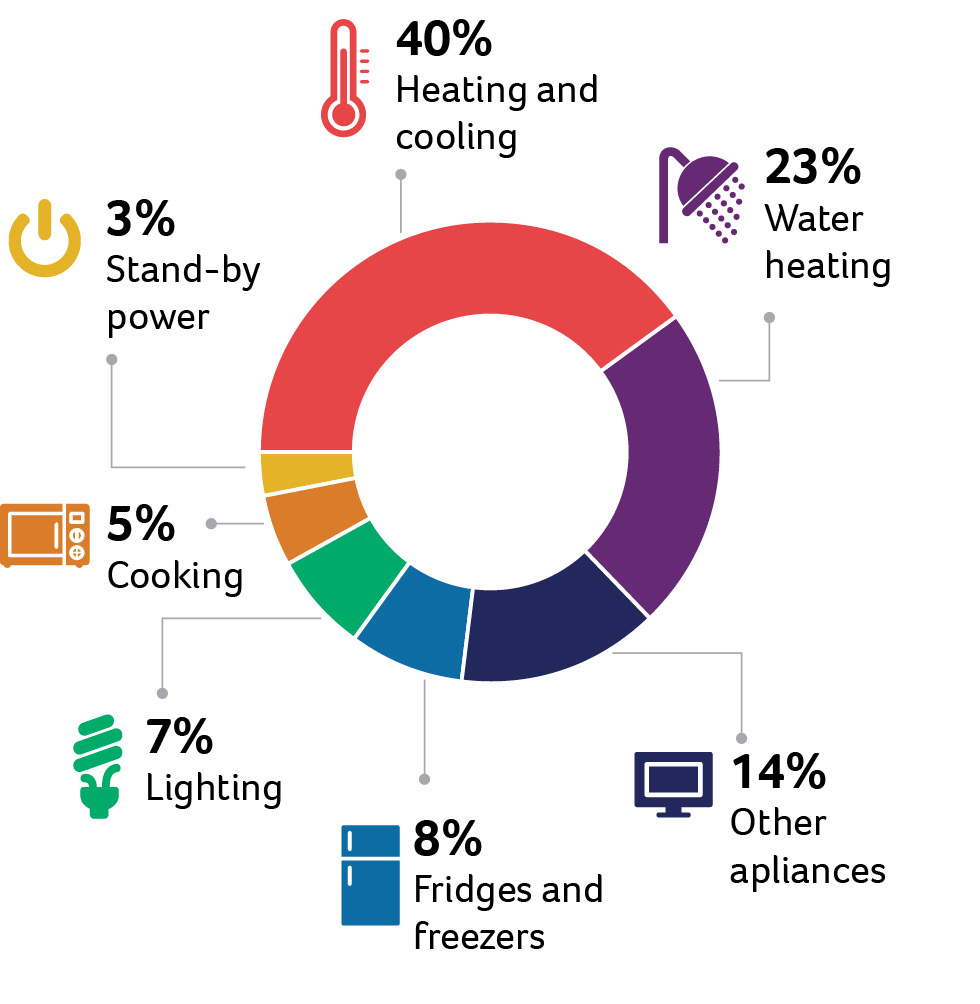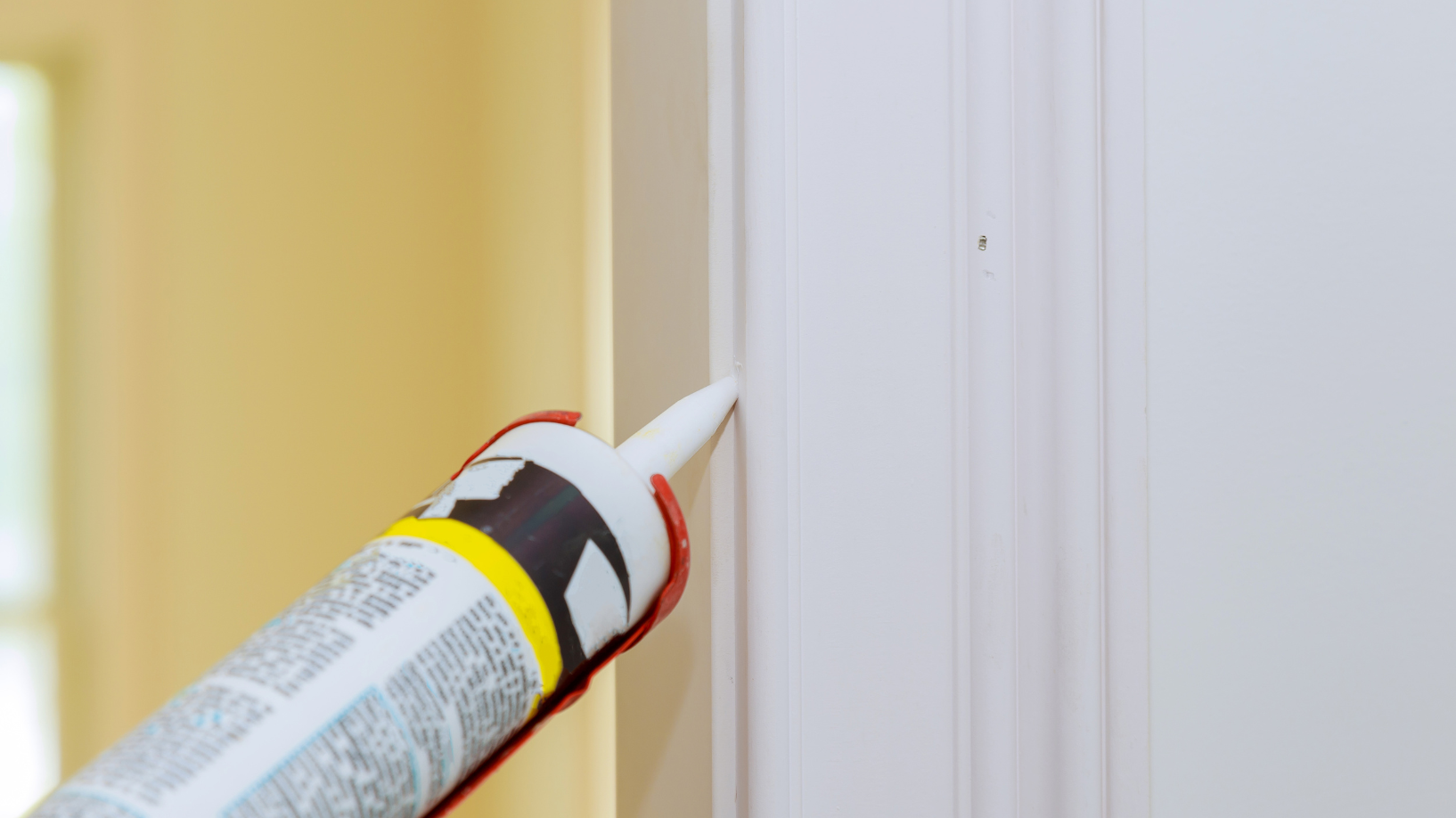Energy prices may be going up, but you can take steps to lower your bill and change the way you use energy, even if you're on a budget or a renter.
In this article, we share 9 great tips to manage your energy use better and reduce the cost of your energy bills.
1. Heat and cool your home the smart way
Did you know heating and cooling can make up to 40% of your home’s energy use?
Being smart about how you heat and cool your home is a very effective way to reduce how much energy you use.
It’s important that you still feel comfortable at home. You should never restrict your heating or cooling if it will harm you and your health. 
Here are some things you can do:
- Only heat and cool the rooms you are using and close all other doors.
- Adjusting your heating or cooling by one degree can decrease your energy use by 5-10%, so if you can:
- In winter, set the temperature at 18-20 degrees
- In summer, set the temperature at 24-26 degrees
- If you have a split system air conditioner, you might be able to use it to heat your home. Look for the ‘sun’ icon on your remote control.
- Have ceiling fans? Use these before turning on the air conditioner. In winter, check if it has a reverse function and use it with your heater. The fan will help circulate the hot air more evenly.
- To stay warm, try an electric throw for the lounge or home office, or even an old-school hot water bottle or heat pack.
- For DIY window glazing, place easy-to-remove bubble wrap on your windows. This will help trap the heat in.
- If you have floorboards or tiles, rugs will help provide insulation. If you’re on a budget, you can pick these up at your local op shop or online marketplace.
- Put up thick curtains with pelmets so heat won’t escape out the window. You might need to ask your landlord to install these. Want to DIY pelmets? Try placing a thick towel or sheet at the top of the curtains to seal the heat in.
2. Stop the draughts
Our homes can be ‘leaky’. This means it’s easy for the air in our home to escape outside, making it harder to keep our home at the right temperature. If you’re renting, you might need to speak to your landlord for their help to seal up any gaps around the doors, windows, walls, and floors. Even without your landlord’s support, there are still things you can do including:
- Use door snakes or rolled up towels for under doors
- Use heavy curtains to keep warmth in
- Fill small gaps with silicone sealant
3. Manage your lighting
If you haven’t done so already, switch out old light globes to LEDs. They use significantly less energy and last longer, so they’re more energy efficient when it comes to lowering your energy bills. And when you’re not in a room, turn the lights off.
4. Switch appliances off at the wall
Did you know that appliances can continue to use power when they're not in use? Up to 10% of your electricity usage comes from appliances on ‘standby’ (when the device is off but there’s still power being used). Save energy and switch it off at the wall when it's not in use.
5. New or replacement appliances
If your fridge or washing machine stops working, it’s a great opportunity to replace it with a more energy efficient model. When shopping around, factor in an appliance’s energy rating. Look for the highest star Energy Rating Label that suits your budget and space. This Energy Rating Calculator can help you compare it to other appliances.
Don't forget to explore your state or territory government website for any rebates you may be eligible for.
6. Change your washing habits
Around 20% of your energy use goes to heating water. Consider doing your laundry in cold water when possible. Make sure you also fill up your washing machine as much as you can before running a load – by doing fewer loads, you’ll save power and money.
Whenever possible, air dry your clothes instead of using a dryer.
7. Know your rights
Whether you’re a homeowner or a renter, you have rights and responsibilities when it comes to energy use.
For example, landlords in Victoria must ensure there is fixed heating in the living room. And if a heater needs to be installed, it must meet applicable energy efficiency standards. If your heater doesn't meet these standards, ask your landlord for a more energy efficient version.
8. Make sure you’re on the right plan for you
One of the easiest ways to lower your bill without changing anything at home is to make sure you’re on the right energy plan for you. There may be other plans out there which will save you money. Read our article, Am I on the best energy plan?
9. Talk to your energy retailer
If you have any questions or concerns about your energy bills, speak to your energy retailer. They can provide advice on how to lower your bill.
Ask your retailer to check:
- If you are receiving concessions or rebates you are eligible for
- If they have a senior’s energy plan offer that is better than what you are already on
- If there is a better energy deal for your circumstances
- Let them know if you require life support equipment.

